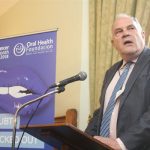Dr Andrew Wilson reflects on his own personal experiences as a young dentist in the profession.
Why do we go to work?
It’s a really simple question but most of us never actually consider the answer. We just go to work because that’s what we’re supposed to do. That’s what society expects. It’s obvious that we go to work to provide ourselves with food, shelter and Prosecco (I know it’s not just me). But if we consider why we work in a bit more detail, you might be surprised by how your perspective changes.
As mentioned above, the first function of our career is to provide for our basic needs. As dentists, we’re lucky in the fact that most of us are able to afford a relatively comfortable lifestyle. But once we’ve ticked that box, what’s next? The next thing our career needs to do is offer us meaningful work; a feeling of achievement that what we are doing is significant and worthwhile.
That’s what I like to believe. We need to find greater purpose in our careers. We need to be striving for something. Otherwise, going to work can quickly become boring and unfulfilling.
Direction of travel
That’s why goal setting is so important. If you have a target that you’re aiming for, you have direction. You have a reason to do what you’re doing. You have motivation and purpose. If you have goals, big decisions often become that little bit easier to make. If you have considered your ultimate ambitions, you can better assess whether this job or that move helps you along the path to achieving those targets.
This acts to keep them present in your mind and motivates you to keep going. When you’ve had a bad week, your goals remind you why you’re doing what you’re doing. To be successful, the key ingredient is persistence. This is what having a greater purpose will inspire.
The power of purpose
People who set goals are much more likely to be successful. However, successful does not always equate to happiness. It turns out that the types of goals that you set have a huge bearing on personal contentment.
Broadly speaking, there are two main types of goals; extrinsic goals and intrinsic goals. Extrinsic goals are based on profits and income. They consider material wealth and how the world views you. Intrinsic goals, also known as purpose goals, are much more individual to you. They are based around personal satisfaction. Is your work meaningful? What are you building? Do you have autonomy over your own life?
It turns out that people who set extrinsic, profit goals – although more likely to accumulate wealth – are also much more likely to be dissatisfied with their lot. Even if they attain their targets of material wealth, individuals can be left feeling anxious, craving more and worried that they still don’t have enough.
Goals based around extrinsic factors alone are extremely unhealthy. What’s the answer?
I believe that you should have a mix of profit and purpose goals, with the intrinsic, purpose goals as your main driver and profit goals as pieces to the puzzle; parts of the strategy that deliver you to the end destination.
What do you want?
Can you see why it’s important to consider why we go to work? I promise you, if you don’t face up to this difficult question, you’ll wake up one day and think “what the heck is the point in all of this?” Whereas, if you set yourself goals, giving yourself purpose, you will develop the motivation to go out and achieve. When the going gets tough, you have the reason to carry on.
Of course, your priorities will change over time and therefore your ultimate ambitions will need to evolve as well. You must not set goals and then become a prisoner to them. But having ambitious targets will allow you to build more, create more, achieve more. Who doesn’t want that?
It can be fun too. It’s exciting to look into the future and view the whole picture. It’s only then that you really find out why you go to work. It’s only then that you find out what you want.
About the author
Dr Andrew Wilson is a general dentist working in Central London and he was the winner of National Young Dentist of the Year at the Dental Awards 2018. He is also the author of The Art of Dentistry blog.








